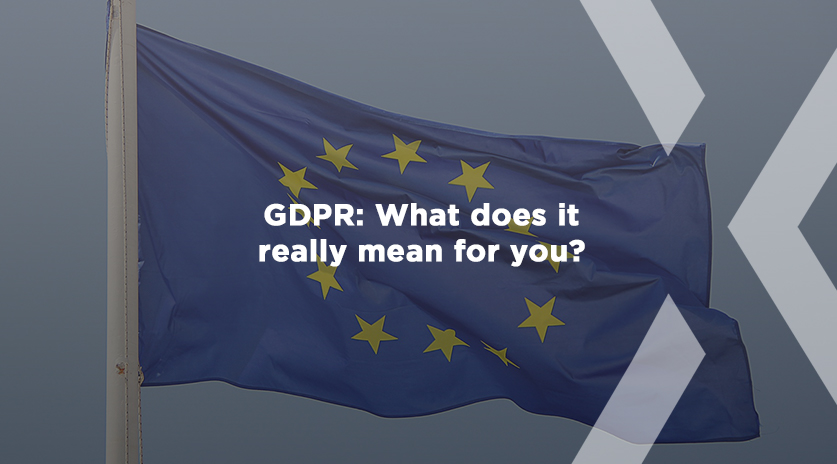GDPR – or General Data Protection Regulation – are words that strike fear into the heart of every business owner (that isn’t yet compliant of course). So what’s at stake here? €20 million, or 4% of your company’s global turnover, whichever is the larger amount. It’s fair to say it’s pretty important that you’re compliant by the deadline in May 2018.
The question on my mind is around the impact it will have on the marketing world, particularly in the SME sector. Once we’ve all made sure we’re only storing and marketing to people through opted in data, how are we going to ensure we continue to gain data that allows us to market to prospective clients?
Gone will be the days where people will be able to cheekily scrape websites for email addresses and spam unsuspecting recipients with offers on cheap training courses; low monthly payments on IT equipment; or candidates available for immediate recruitment.
In my opinion, the answer will be through a major improvement in valuable content marketing. Content is at the heart of any good communications strategy: you could have the most amazing looking website in world, but if the content doesn’t carry the right message, it doesn’t mean anything.
Here are 3 ways you can ensure you can continue getting people opted in to receive your digital marketing communications:
Add value and don’t sell
Nobody wants to be sold to without consent. If you’re in the B2B service sector, it’s likely people will approach you based on their perception of your expertise and experience. That means: don’t try to ram your services down their throat. Instead, give valuable advice associated with your expertise. Try to give information that they will find valuable and may even be able to implement themselves.
‘Why would I tell people how to do my job? They’re just going to do it themselves!’ There is some truth in this statement. However, a DIY-er won’t have an eye for detail and therefore won’t appreciate the value of your service, or they simply don’t have a budget. Either way, a person willing to DIY something that’s not their area of expertise, wouldn’t be on my list of desirable clients. Don’t get me wrong, there are some things such as social media that can be done in house, but it’s unlikely that a person doing it in-house would be able to stay on top of the game in the same way a specialist can.
By providing valuable content to prospective customers, you will be building an intrinsic value for your brand in their mind. They will recognise that you are an expert and will likely think about you the next time your service is required, or when it needs to be recommended.
Be regular
There’s nothing worse than seeing the last blog on a website being posted over a year ago. In this day and age of instant gratification and on the spot news, it’s important to be as regular as possible with your digital communications.
Regularity means a constant focus on what’s hot and what’s not in your field. It’s not easy coming up with regular content. Once you’ve used up all your hot/lukewarm ideas, you then need to really look into what people want to learn about. Yes, this means a bit of hard work, but the positive knock-on effect is that people will see you as an authority in what you do, especially when combined with point one above. Adding regular, valuable content is a dead cert to gaining more registrations for your direct email-marketing list.
Share opinions
Don’t be afraid to share an opinion! There is a lot of content out there – even the most niche industries have been shrunk through being able to access the world wide web via a nifty device they carry around in their pocket all day.
Sharing an opinion presents a unique take on a situation, which means you are creating unique content. Unique content = content that stands out = more interest = more opted in recipients. Simple!
These are just 3 simple tips on improving your content.
GDPR is going to present a challenge for all marketers. It will make our lives that much more difficult BUT, the end result will mean a much stronger focus on value adding content. GDPR will see only the strongest content marketers survive and ultimately improve the quality of information we communicate to recipients.

